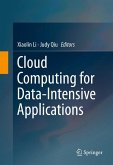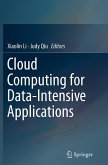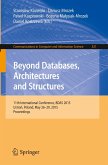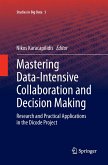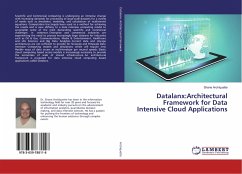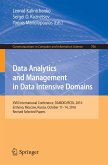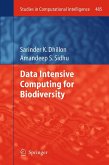Data Intensive Computing refers to capturing, managing, analyzing, and understanding data at volumes and rates that push the frontiers of current technologies. The challenge of data intensive computing is to provide the hardware architectures and related software systems and techniques which are capable of transforming ultra-large data into valuable knowledge. Handbook of Data Intensive Computing is written by leading international experts in the field. Experts from academia, research laboratories and private industry address both theory and application. Data intensive computing demands a fundamentally different set of principles than mainstream computing. Data-intensive applications typically are well suited for large-scale parallelism over the data and also require an extremely high degree of fault-tolerance, reliability, and availability. Real-world examples are provided throughout the book.
Handbook of Data Intensive Computing is designed as a referencefor practitioners and researchers, including programmers, computer and system infrastructure designers, and developers. This book can also be beneficial for business managers, entrepreneurs, and investors.
Handbook of Data Intensive Computing is designed as a referencefor practitioners and researchers, including programmers, computer and system infrastructure designers, and developers. This book can also be beneficial for business managers, entrepreneurs, and investors.
From the reviews:
"The material is written by experts from nearly 40 institutions, including academia, industry, and government; they are mostly from the US, but also from Europe, Asia, and Australia. ... The editors make readers aware of the scale of data generated from a variety of sources, which require immediate comprehensive analyses. ... The value of this book might be in collecting papers that focused on the issues of big data, so interested parties can have a handy overview of related problems and prospective solutions." (Janusz Zalewski, ACM Computing Reviews, September, 2012)
"The material is written by experts from nearly 40 institutions, including academia, industry, and government; they are mostly from the US, but also from Europe, Asia, and Australia. ... The editors make readers aware of the scale of data generated from a variety of sources, which require immediate comprehensive analyses. ... The value of this book might be in collecting papers that focused on the issues of big data, so interested parties can have a handy overview of related problems and prospective solutions." (Janusz Zalewski, ACM Computing Reviews, September, 2012)



